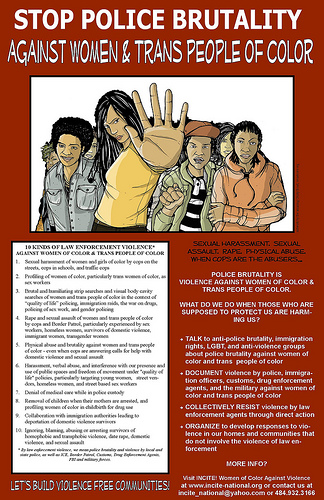Police State, cont’d: 16 years in Prison for Videotaping a Traffic Stop?
Apparently, it is illegal to videotape traffic stops or other interactions with the police. Presumably, police officers do not believe that they are accountable to community members. An article in Time Magazine asks the question: “Should Videotaping the Police Really be a Crime?”
From the article:
Anthony Graber, a Maryland Air National Guard staff sergeant, faces up to 16 years in prison. His crime? He videotaped his March encounter with a state trooper who pulled him over for speeding on a motorcycle. Then Graber put the video — which could put the officer in a bad light — up on YouTube.
It doesn’t sound like much. But Graber is not the only person being slapped down by the long arm of the law for the simple act of videotaping the police in a public place. Prosecutors across the U.S. claim the videotaping violates wiretap laws — a stretch, to put it mildly.
Another incident cited in the article:
Last year, Sharron Tasha Ford was arrested in Florida for videotaping an encounter between the police and her son on a public sidewalk. She was never prosecuted, but in June, the American Civil Liberties Union (ACLU) of Florida sued the city of Boynton Beach on her behalf, claiming false arrest and violation of her First Amendment rights.
The legal argument prosecutors rely on in police video cases is thin. They say the audio aspect of the videos violates wiretap laws because, in some states, both parties to a conversation must consent to having a private conversation recorded. The hole in their argument is the word “private.” A police officer arresting or questioning someone on a highway or street is not having a private conversation. He is engaging in a public act.
 In Brooklyn, a terrific group called Sista II Sista used to tackle police violence specifically against young women of color by videotaping encounters with the police. They even produced a video and workshop around this work. While Sista II Sista is no longer in existence, they have memorialized their work in a terrific toolkit created by Incite! Women of Color against Violence.
In Brooklyn, a terrific group called Sista II Sista used to tackle police violence specifically against young women of color by videotaping encounters with the police. They even produced a video and workshop around this work. While Sista II Sista is no longer in existence, they have memorialized their work in a terrific toolkit created by Incite! Women of Color against Violence.